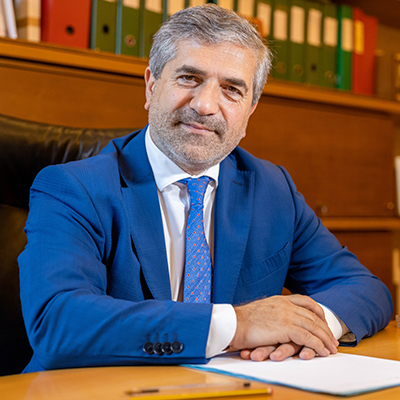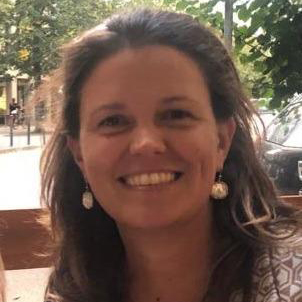The Times Are Changing. Is Education Keeping Up?

In this issue, dedicated to the big questions shaping our future, we have devoted a significant space to the theme of education.
The major political, social, and technological shifts of recent years are profoundly impacting not only universities but education systems as a whole. People are changing far more rapidly than institutions that should take care of their knowledge and learning.
So, where are we headed, and how can we move toward the future without being overwhelmed by it?
We asked two experts to help us reflect on these very questions: Professor Domenico Simeone, Dean of the Faculty of Education and Director of the UNESCO Chair "Education for Human Development and Solidarity among Peoples,” and Professor Rita Locatelli, Researcher in Theories and Science of Education and Social Education and member of the Scientific Committee of the UNESCO Chair.
Mapping pedagogical knowledge
Beniamina Cassetta
In 2024, under the editorial supervision of Dean Simeone, the first Italian Dictionary of General and Social Pedagogy was published. Within this dictionary, Professor Locatelli authored the entry on education as a common good. What is the significance of this dictionary, and how can education be understood as a common good?
Domenico Simeone
The dictionary identifies topics that are, so to speak, emblematic landmarks in pedagogical research. It's a bit like taking a walk through the world of pedagogy and marking out some significant places – the milestones of this intellectual landscape. It was conceived as a map for scholars, educators, pedagogues, and, more broadly, for anyone interested in education, enabling them to chart their own path while exploring both expert perspectives on key concepts and how these ideas are applied and brought to life today.
Rita Locatelli
The term ‘education as a common good’ is currently highly relevant in both Italian and international debates because it allows us to rethink the paradigm that should underpin educational systems worldwide.
It goes beyond the more conventional notion of education as a public good – that is, education primarily provided by public institutions – and incorporates relational and community dimensions that reinforce democratic processes.
The UNESCO Chair
BC
Since 2018, the Faculty of Education has held a very important distinction: a UNESCO Chair. Could you tell us more about what it is and what it involves?
DS
The UNESCO Chair is an acknowledgment granted to universities or research centres distinguished by their academic and international cooperation efforts on topics such as education, human rights, sustainable development, and a culture of peace.
The idea of applying for the Chair was born in 2017, during a conference held at Università Cattolica’s Brescia campus to mark the fiftieth anniversary of Populorum Progressio, the encyclical by Pope Paul VI.
On that occasion, I imagined that launching a UNESCO Chair could be a way to give tangible expression to the message of the encyclical.
RL
Officially founded in 2018, the Chair is titled Education for Human Development and Solidarity Among Peoples. It contributes to the achievement of Goal 4 on Quality Education of the UN 2030 Agenda, focusing on the right to education, international cooperation, and democratic and citizenship education. Core activities include scientific research, the promotion of projects of international cooperation – such as Maison de Paix in the Democratic Republic of the Congo – training in the field of international cooperation, participation in national and international forums, and the dissemination of key UNESCO Global Education Reports. The Chair also collaborates with the Observatory for Education and International Cooperation of Università Cattolica.of the UN 2030 Agenda, focusing on the right to education, international cooperation, and democratic and citizenship education. Core activities include scientific research, the promotion of projects of international cooperation – such as Maison de Paix in the Democratic Republic of the Congo – training in the field of international cooperation, participation in national and international forums, and the dissemination of key UNESCO Global Education Reports. The Chair also collaborates with the Observatory for Education and International Cooperation of Università Cattolica.
Learning to learn in a world of information
BC
We’ve cited a 2015 UNESCO document titled Rethinking Education: Towards a Global Common Good? It argues that learning to learn has never been more important. In a time of abundant and easily accessible information, have we truly learned how to learn?
DS
As the philosopher Edgar Morin said, echoing Montaigne: “Better a well-made head than a well-filled one.” From this idea of a well-made head, we can draw the importance of equipping younger generations with the tools to know, to navigate, and to move confidently through the world.
Learning to learn becomes the foundational key competence needed to acquire other essential skills in a rapidly evolving world. It’s also a gateway to critical thinking, a tool of freedom that empowers individuals to make informed choices.
RL
Considering that, statistically, there are currently over 700 million illiterate people in the world – most of whom are women – literacy is a crucial issue. It is essential if we truly want to advance that paradigm of education as a common good we discussed earlier.
Without literacy, people struggle to participate consciously in public life. In this sense, all the current international developments surrounding the management of Digital Commons are especially significant. They offer a horizon for development and tools that can facilitate learning while accounting for technological innovations.
Education and social justice
BC
What can we do, and how can we work toward building education systems that prioritise social justice and equity, especially in contexts marked by stark inequalities?
DS
In his well-known book Il paese sbagliato (The Wrong Country), Mario Lodi reflects on his post-war experience as a teacher. In a letter to a young woman preparing to become a teacher, he wrote that every day we must choose whether to direct our educational work toward slavery or liberation - toward conforming people to societal demands or giving them the tools to be agents of a new, fairer, more inclusive world.
I believe this is true today. Education can lay the foundation for a democratic process that empowers individuals, gives them the means to express themselves, to participate in public life, and to claim their agency.
Conversely, education can also become a tool for control and restriction. When we introduce profit into this dynamic, we must ask: what values guide an education system whose goal is profit?
RL
That’s a difficult question to answer. But the fact that we can continue reflecting on it – collaborating not just as a university, but also through the UNESCO Chair, which operates within a framework inspired by principles centred on human development – keeps us committed to generating new knowledge and research.
Communities and education
BC
There’s a famous African proverb that says, “It takes a village to raise a child.” Is this reality, or is it just a saying?
DS
Education is not an individual endeavour – it’s a collective one.
Parents often see their role and responsibility as a private matter, but we know education is a social act and needs community.
Every child, every adolescent, needs a community to grow. That community might be a village, a neighbourhood, a virtual network, or a city. It’s the quality of the relationships we build that guarantees a child the chance to grow and be educated.
RL
I immediately thought of villages as plural. In UNESCO’s recent report Reimagining Our Futures Together, the idea of multiple possible futures is central.
So, we might imagine several possible “villages,” where – recalling what the professor said about education being a social act – different social and educational actors come together, depending on the context, but united by shared values such as human rights, dignity, justice, and equity.



